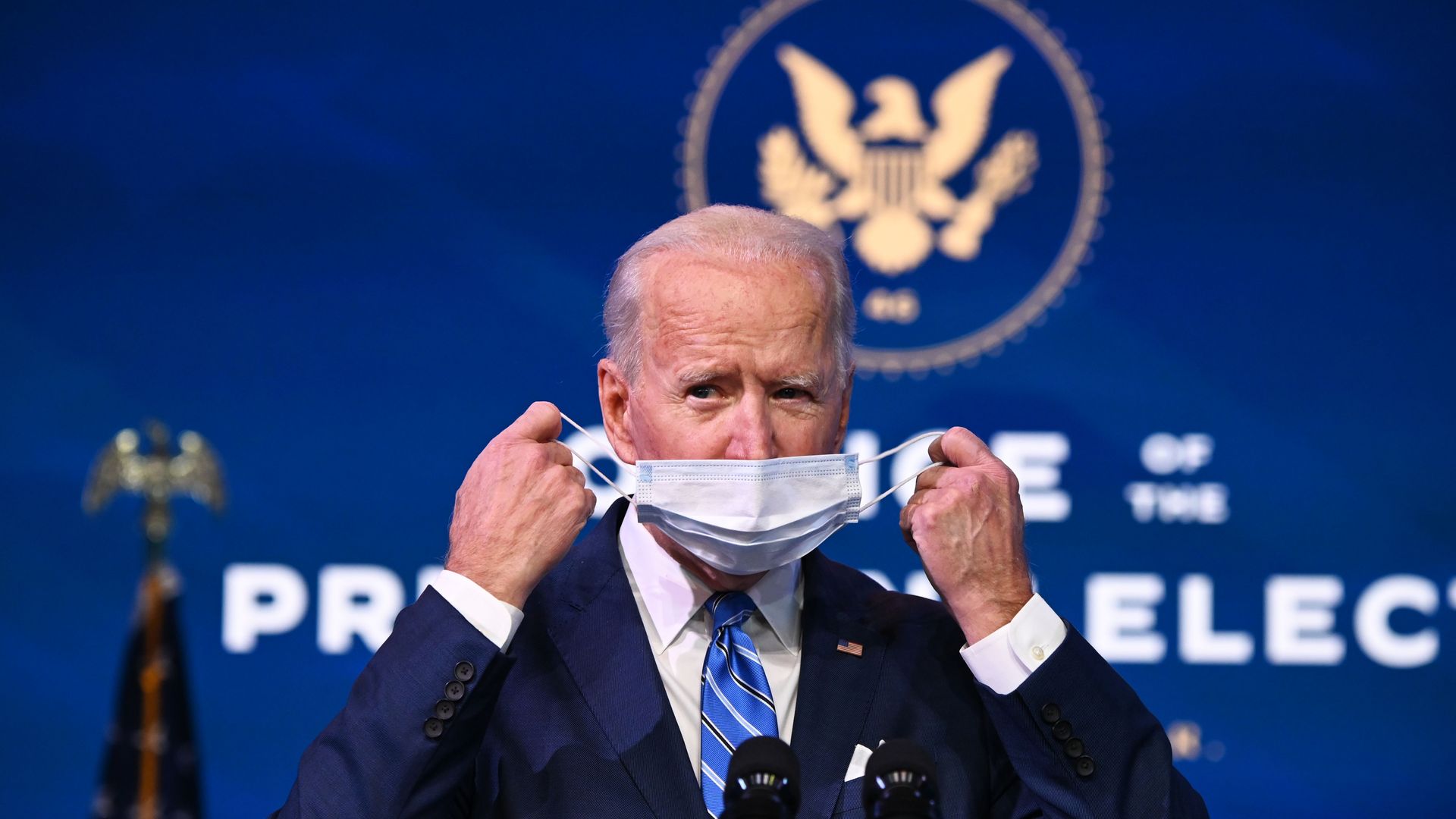Biden on his nearly $2 trillion plan: "We cannot afford inaction”
Add Axios as your preferred source to
see more of our stories on Google.

Joe Biden before speaking Thursday. Photo: Jim Watson/AFP via Getty Images
President-elect Biden called for a $1.9 trillion COVID-19 relief plan this evening, including money to combat the spread of the virus, vaccinate millions of Americans and provide direct relief to individuals in the form of an additional $1,400 in cash payments.
Why it matters: Biden’s “American Rescue Plan” is his opening bid to Congress on the first of two massive proposals requiring approval in the House and Senate. He'll return in February, in his first address to Congress, to ask for additional infrastructure spending, as Axios reported and Biden confirmed Thursday night.
- "I know what I just described does not come cheaply,” Biden said. "But failure to do so will cost us dearly."
The big picture: Biden has said COVID-19 and its economic effects are the two biggest problems Americans are currently facing. Less than a week before becoming president, he's giving a pre-inaugural address outlining his legislative plan for coping with them, as well as previewing what he plans to do administratively.
- "Next week, we'll take action to extend nationwide restrictions on evictions and foreclosures," he said.
His spending proposal will be divided into three parts:
- $400 billion to address the virus.
- $1 trillion in direct relief to families and individuals.
- $440 billion to help communities and businesses hit the hardest by the pandemic.
Within those baskets, he'll seek:
- The $1,400 payments, to be added to the $600 checks Congress passed last month, for $2,000 in overall relief.
- Raising unemployment insurance from $300 to $400 per week, and extending it through September.
- Roughly $20 billion for a national vaccination program, and another $140 billion for testing and other public health investments.
- Fourteen weeks of paid leave for caregivers, payable to those coping with school closures and caring for people with COVID-19 symptoms.
- Raising the national minimum wage to $15 per hour, and abolishing the tipped minimum wage and the sub-minimum wage for people with disabilities.
The tactics: Biden plans to pass the first proposal through legislative "regular order,” meaning he'll need 60 votes in the Senate. He's counting on the appeal of cash payments to attract the votes.
- For the second, far-larger package, he'll likely try to skirt the filibuster rule — and its 60-vote requirement — through a process known as "budget reconciliation," requiring just a majority vote.
- The president-elect doesn't plan to offset of any of the new spending in the package he's outlining tonight with new taxes.
The bottom line: Biden isn’t letting fear of sticker-shock trim his spending ambitions, although he knows difficult legislative work lies ahead.
- Many of his top political and economic advisers are determined not to underestimate the scale of economic damage in the country, and want to spend more up front to prevent it from lingering any longer than necessary.
